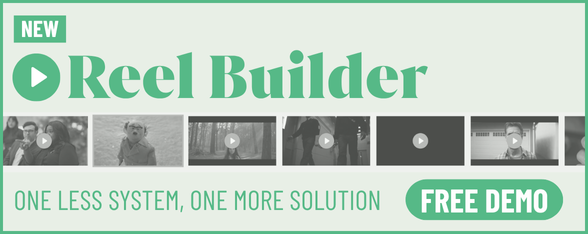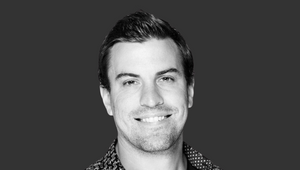
Creativity at a Time of Seismic Change

It was an All Star Ad Astra session at the LBB & Friends Beach on Thursday as a whatever-is-the-collective-noun-for-global-chief-creative-officers of global chief creative officers joined LBB’s award director Emma Wilkie to discuss and celebrate creativity in an age of great change in the advertising industry.
At times, with the onslaught of martech at Cannes, it can be easy to forget that it’s a festival of creativity, so the panel kicked off the burning question – is creativity still fun?
For Gabriel Schmitt, global CCO at Grey, it’s still fun and inspiring. “I like to believe that, yes, the new generations still want to feel what it is to have a great idea and seeing ideas through and seeing the idea potentially winning things, [and]it's getting hard and being surrounded by a lot of walls and barriers that we absolutely can overcome, but we really need to stick together, I think. But then also expand our relationships to the other disciplines and clients, and make sure that everyone understands that creativity is the only way for business growth.”
In advertising specifically, one thing that keeps creativity fresh is the almost infinite canvas on which to work magic, whereas other fields can be more restrictive. That expansive sense of possibility keeps things interesting for Alex Schill, global CCO and partner at Serviceplan Group. “Creativity is not related to any form of media or text or visuals or whatever. I think the good thing on creativity is that it helps us to solve problems. And no matter with which media or technology or which problems occur, it is always good to use creativity to [do] that. So for me, it's not so much on the executional level of things. It's more like a brain thing, how to approach the problems and the challenges.”
“I think creativity is the most exciting and powerful gift we have as humans, and I would say with that, we can solve all of these problems and more,” said Malcolm Poynton, global CCO at Cheil Worldwide. “But ultimately, to me, if it's not fun, you're doing it wrong.”
Ideas are the currency of creative advertising, and while we can all agree on the necessity of good ideas, one thing that’s somewhat less clear is the primacy of the fabled ‘big idea’ of the golden age of advertising. Is that still relevant in this fragmented world?
Malcolm’s view is that while we may be seeing ‘smaller’ or more tactical ideas these days, these tactical ideas can still add up, particularly when the brand is a strong idea in and of itself – like Liquid Death. Of course, big ideas can still build billion dollar brands, as Malcolm referred to the still on-going Dove Campaign for ‘Real Beauty’, a platform that’s going strong 20 years later.
According to Kate Stanners, global CCO, it’s not necessarily about the ‘big idea’ but the ‘right idea’. “It's always the right idea, and then it's the channel. Take that idea to the channel, rather than the other way around. And I think possibly, when we think about the channels, first, you've already started fragmenting your idea, thinking about what the challenge is, first getting the right solution to that challenge and then putting it in the right place to have the most impact.”
Recently Alex Schill was president (check) of the Media Jury at D&AD, something he found fascinating in light of the question. The two campaigns vying for supremacy were the CeraVe Super Bowl campaign – in many ways a classic 360 campaign – and the other a simple push notification sent by food delivery service, PedidosYa, to a large chunk of Argentina telling them their order was on its way – referring to the World Cup making its way home to Argentina. “So what do we call that? I would call that a big idea. It's just a small fucking push notification. It's a big idea, but the classical definition of ‘Big Idea’ was like what they did on CeraVe, which is 360 – totally integrated using every media point that we can have on one platform to push it out there. So I think [the] big idea definition changed, but it is like, we just have to be open to find the small things, to make them big – and then it’s a big idea.”
One thing that’s concerning Andres Ordonez isn’t so much whether an idea is sufficiently ‘big’, but rather in among the fragmentation and need for speed – there’s work going out that doesn’t have any idea at all. “There’s a lot of work out there that looks really nice, but there is no idea inside of it. So I think that is making us rethink every single piece, because we’re moving too fast and we have too many tools,” he says. “Our job is to build brands and find those ideas big or small. It doesn’t matter what they are, but that there are brilliant things on every single piece that we touch. That’s what our role is. So, let’s keep looking for that idea.”
Gabriel suggested that the ‘big idea’ of old has morphed into the ‘platform’. “[A platform] is more important than ever, because that’s your guiding principle. So, then you can play with bigger stuff and smaller stuff, but you’re playing within a set different landscape,” he said, looping back to Malcolm’s reference to Liquid Death – a brand with the strength and consistency of voice and platform that allows it to play with ideas.
As well as growing clients’ brands, chief creative officers have another brand they need to take care of: that of their own agency. And that’s easier said than done these days as storied brands find themselves merged or even retired in holding companies’ quest to streamline.
It’s a point of pride for Andres that FCB is 151 years old. “If we don’t take care of our own brand, how can we ask clients to take care of their own? I think it starts with that – how can we preach something that we’re not doing ourselves?,” he said, reminding the crowd that an agency’s culture and values are invaluable parts of its brands.
Gabriel draws a parallel between ad agencies and fashion houses. While new designers will come and open their own labels – bringing oxygen to the industry – the staples like Dior, Prada or Gucci are just as important to the industry. He said that at Grey, they were making an effort to learn from independent agencies and how they do things, but adds that the heritage makes for a richer culture, and that there’s room for both new boutiques and the established brands.
These brands, Kate Stanners adds, are crucial for communicating with and attracting both clients and talent. “The truth is, I think the brands do help clients navigate as well. And you know, we're able to create culture in many ways through the work we make, the cultures we create and the talent we attract. And I think talent is attracted to these different types of places. And there will be a reason someone will want to work with Alex versus Malcolm. And that's good.”
Of course, for a brand to survive, it has to be relevant. Malcolm recalls PanAm and Blackberry – once supreme names in their field that are no longer around. It’s a sobering lesson, particularly now. “That’s all about relevance. There can be seismic changes around what an industry is, which our industry is going through. Unfortunately some brands are mismanaged and not agile enough to go to where the new place is. And when they can’t do that, they’re not going to survive.”
AI is, of course, a central part of that ‘seismic change’, so even in the creative conversation there was no escape from the big theme of the week.
From Malcolm’s perspective, as a company that’s been experimenting with AI to help bring innovative projects and experiences to life for years, artificial intelligence isn’t new. It’s been baked into projects like Cheil India’s Voice Forever from 2018 and this year’s Impulse from Cheil Spain. However, when it comes to gen AI, the legal and ethical risks are too off-putting. “We don’t want to expose ourselves to that. We don’t think it’s necessary, certainly, we don’t go into it to that extent. We think more about what we can do with AI, not what it can do for us.”
For Gabriel, he believes that the benefits of AI are twofold. On the one side, there are tools that do help with the lower funnel ‘churn’, “which only gives us more time to think about the groovy stuff”. And then, at the upper end of creative thinking and craft, he believes that AI will function as a useful editor or curator.
As a creative tool, Alex Schill points out that as people converge on the same tools, it may mean that every agency reaches the same level. He sees a greater use for it in doing the heavy lifting of media rather than creative, but that’s not to say that creatives can’t think of innovative ways to create new kinds of AI-driven products and services.
Andres, meanwhile, is already embracing and immersing himself in AI and thinks it’s going to really stretch creatives to the next level. “I think it’s beautiful in the sense that it’s going to challenge us as creators. The way that I see it is that you can put anything against the machine, and if the machine understands what you’re talking about, maybe you’re not great or you’re not pushing yourself that much. So using it as a way to bounce is beautiful for creatives. It’s kind of like inviting us to be better.”
Kate Stanners reflected on the huge investment that Publicis Groupe has made in AI and the impact that it’s had. “The scale of it is really helpful, and that is a thumbs up for, in our case, Marcel and the Publicis Groupe. Because it really has been a game changer,” she said. “The thing about creative people is we’re curious. So it will be creative people that develop AI. It isn’t going to be AI taking our jobs. It’s not. Maybe people that understand AI will take our jobs but not AI.”
“I couldn’t agree more,” said Malcolm. “I think AI won’t define us at all. It’s what we do with it that will define its role for us.”















